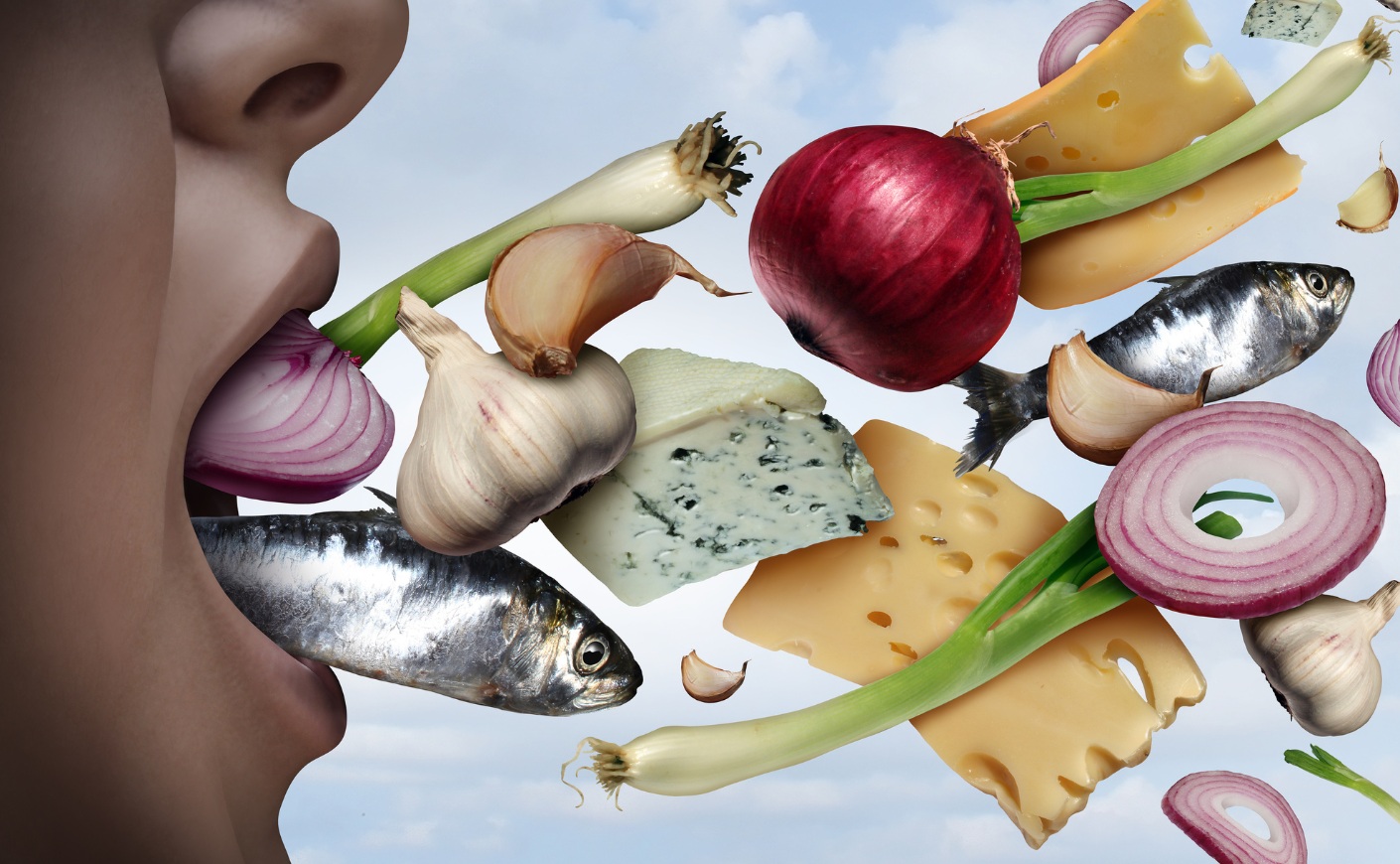Is there a worse feeling than being out and about — no gum or mints on hand — and realizing that your breath is, well, gross? If you’ve just eaten a tuna fish sandwich, then you probably aren't confusion as to why people might be backing away from you during close conversations. But say you haven’t indulged in any smelly foods recently, you just brushed your teeth, and you’re still not passing a sniff-check. What could be going on?
Sarah Eller, a licensed dental hygienist and the chief clinical officer of the new dental service Wally Health, tells Katie Couric Media that several factors can cause an offensive oral odor. “Most people are aware that not brushing or flossing can cause bad breath,” she says, but there are additional culprits that many of us don’t know about. Here, Eller breaks down what could be making your mouth emit an unpleasant smell, how to banish the odor for good, and how to gently tell someone they need to pop a mint — or maybe see a dentist.
Katie Couric Media: What are the factors that can cause bad breath?
Sarah Eller: Not brushing or flossing can cause bad breath due to bacteria buildup, but additional sources of bad breath include:
- Dry mouth, which can lead to a bacterial overgrowth — and many medications cause dry mouth as a side effect
- Gum disease, which harbors certain types of harmful bacteria that produce volatile sulfur compounds, which can have a strong odor
- Medical conditions such as acid reflux or sinus issues like post-nasal drip
- Food! Some foods are just smelly — like onions or garlic
Why do people have bad breath even after brushing their teeth?
Teeth brushing only cleans about 60 percent of the tooth structure, leaving residual bacteria between the teeth, under the gums, and on the tongue. So even if you’re brushing with perfect technique (which is really hard to do!), there’s a lot of leftover bacteria. Using an electric toothbrush can help make your technique as effective as possible. Your breath may also be related to other factors such as gum disease, diet, or medical conditions.
Are gum and mints actually helpful?
It depends. Most gums and mints that contain sugars may actually contribute to the problem, because they feed the bacteria that can be a source of bad breath — or they simply mask the issue. However, some gums/mints can help, if the main cause of the smell is due to oral bacteria. Gum and mints that contain xylitol help fight bad bacteria and keep them away. The action of chewing gum can even help cleanse food particles from deep chewing grooves in the teeth, which may also be contributing to the isdsue.
Aside from brushing, what else can I do to eliminate bad breath?
Be sure to clean between your teeth — using floss, a water flosser, or gum brushes — and use a tongue scraper to remove as much bacteria as possible. Stay hydrated to improve saliva health and volume, which can keep bacteria at bay, and introduce a xylitol gum or mint. Lastly, be sure you maintain a preventative care relationship with your dental hygienist. Look for providers who use the most advanced dental hygiene technology, like Wally Health.
What's the most common misconception people have about bad breath?
Most people attribute bad breath to poor oral hygiene. While this is a factor for some, many of the most prominent factors contributing to bad breath are more complex, and require additional support for effective treatment.
Any tips for gently telling someone their breath kinda stinks?
As a dental hygienist, I’m fortunate that I’m always able to anchor this discussion to bacteria and dental health. For the average person, however, it’s a much more personal and sensitive matter. If you’re like me, you could take the "excited nerd" approach and offer a piece of xylitol gum, while explaining how your dentist recently shared that this gum will help fight bacteria, cavities, and even bad breath. Most people with bad breath are aware of it, so this is my preferred method.
Or you could be more direct if that’s your style, and say, “Hey, I just wanted to let you know that sometimes I notice your breath is a bit strong. I’d want you to tell me if it were me. I recently learned that it can happen for more complex medical or dental reasons, so I also thought it was important to share.”









